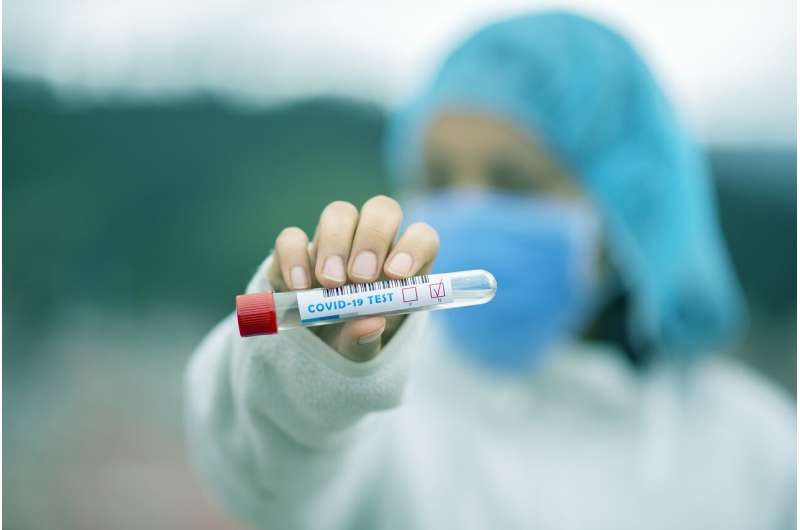#School testing plans risk spreading COVID-19 more widely, warn experts

“#School testing plans risk spreading COVID-19 more widely, warn experts”

As schools prepare to re-open to all pupils in February, experts warn that UK government plans for mass testing risks spreading COVID-19 more widely.
Writing in The BMJ, Professor Jon Deeks and colleagues at the Royal Statistical Society argue that using the INNOVA rapid lateral flow tests to manage classroom outbreaks, without isolating close contacts, risks increasing disease spread and causing further disruption to children’s education.
Before Christmas, schools limited pupil mixing and activities, and isolated pupil groups at home once a COVID-19 case was identified, they explain. This year the government is relying on the INNOVA rapid lateral flow tests to mass screen staff and pupils, and test close contacts of confirmed COVID cases.
Under this “serial-testing” strategy, close contacts remain in school, are tested daily for seven days, and are only sent home if they test positive.
But scientists are concerned that negative Innova results are too inaccurate to rule out COVID, warn Deeks and colleagues. For example, the MHRA authorisation for INNOVA excludes using negative results to “enable activity”, and the Chief Medical Officer, World Health Organization, Royal College of Pathologists, SAGE, and others have likewise advised caution.
“There is a real risk that the serial-testing strategy of contacts may increase rather than decrease COVID cases in schools,” they warn.
They point out that in six studies of people with symptoms, INNOVA identified 58 to 96% of cases compared with the “gold standard” PCR test, and test performance declined when not done by experts, as will happen in schools.
But pupils tested in schools will not have symptoms and three studies in symptomless people show the test performing worse, they add.
While mass testing with INNOVA will detect some of these cases, it will miss many, and falsely reassure those testing negative if they are not properly informed of the test’s limitations, they argue.
They warn that if any of the pupils who test negative are infected, they risk becoming infectious and spreading the virus before testing positive and isolating, and that any clinically vulnerable pupils or staff in the class will be put at particularly high risk.
“This proposed strategy is, in effect, using negative INNOVA results to enable pupils to remain in school contrary to the MHRA restriction and scientific advice,” they write.
They call for rigorous evaluation of the new strategy compared with other testing options, such as the use of PCR test-to-release after 5 days (as required for travellers), to check whether each strategy’s benefits outweigh its harm, particularly with the increased transmission risk of the new variant.
They acknowledge that home isolation has a hard impact on children, families, and teachers, but say “if INNOVA testing in schools risks spreading the disease more widely, it may lead to even more disruption to education and put many more people at risk.”
UK government must urgently rethink lateral flow test roll out, warn experts
Opinion: Covid-19 INNOVA testing in schools: don’t just test, evaluate, blogs.bmj.com/bmj/2021/01/12/c … t-just-test-evaluate
Citation:
School testing plans risk spreading COVID-19 more widely, warn experts (2021, January 12)
retrieved 12 January 2021
from https://medicalxpress.com/news/2021-01-school-covid-widely-experts.html
This document is subject to copyright. Apart from any fair dealing for the purpose of private study or research, no
part may be reproduced without the written permission. The content is provided for information purposes only.
If you liked the article, do not forget to share it with your friends. Follow us on Google News too, click on the star and choose us from your favorites.
For forums sites go to Forum.BuradaBiliyorum.Com
If you want to read more Like this articles, you can visit our Science category.


